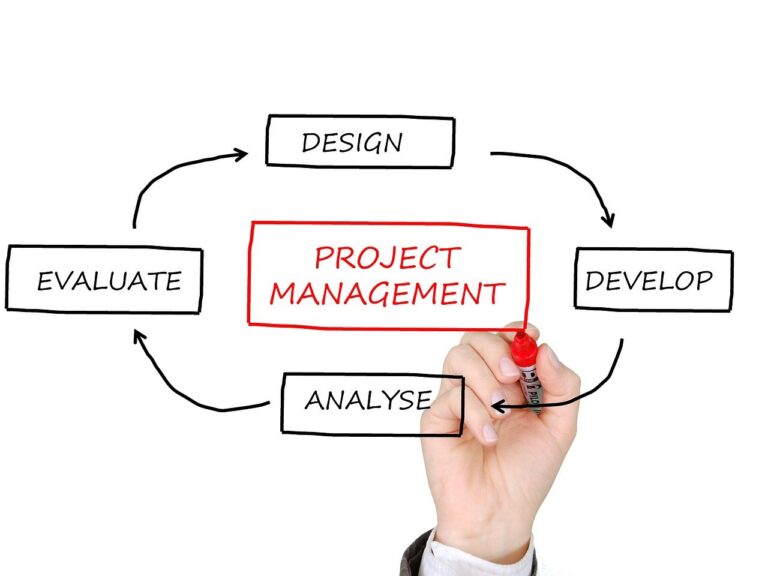From Learning to Leading: Educational Foundations for Superior Project Management

Superior project management ensures that projects are completed on time, within budget, and to the desired quality standards, ultimately contributing to the organization’s overall strategic goals.
Education forms the bedrock of effective project management by equipping individuals with the necessary skills, knowledge, and methodologies to handle complex projects.
Through a combination of formal education, practical experience, and continuous learning, aspiring project managers can develop a robust foundation that prepares them to lead projects successfully.
This comprehensive approach not only fosters technical skills but also cultivates critical soft skills such as leadership, communication, and strategic thinking.
Key Educational Foundations for Project Management
Formal Education
Degrees in project management, business administration, and related fields provide theoretical knowledge and analytical skills essential for understanding project management principles.
Certifications such as PMP (Project Management Professional) or PRINCE2 (Projects IN Controlled Environments) offer standardized methodologies and best practices recognized globally.
These formal credentials validate a project manager’s expertise and enhance their credibility in the professional world.
Practical Experience
While formal education provides theoretical groundwork, practical experience is vital for reinforcing these concepts.

Real-world experience allows aspiring project managers to apply their knowledge in dynamic environments, face actual challenges, and develop problem-solving skills.
Internships, co-op programs, and entry-level project management positions offer invaluable opportunities to gain hands-on experience, learn from seasoned professionals, and understand the nuances of project execution.
Continuous Learning
The field of project management is continually evolving, with new methodologies, tools, and technologies emerging regularly. Therefore, continuous learning is essential for staying updated with industry trends and maintaining a competitive edge.
Engaging in professional development through workshops, seminars, online courses, and industry conferences enables project managers to acquire new skills, adapt to changing practices, and remain effective leaders throughout their careers.

Core Skills Developed Through Education
Project Planning
Project planning is a fundamental aspect of project management, encompassing scope definition, scheduling, and resource allocation.
Education in this area equips project managers with the ability to create comprehensive project plans that outline objectives, deliverables, timelines, and resources.
These plans serve as blueprints for project execution, ensuring all team members are aligned and aware of their responsibilities.
They also serve as a resource planning guide, helping you to optimize your project planning.
Communication and Collaboration
Effective communication and collaboration are critical to the success of any project. Educational programs emphasize the development of these skills, teaching project managers how to facilitate clear and concise communication among team members, stakeholders, and clients.
Strong collaboration skills enable project managers to foster a cooperative team environment, resolve conflicts, and ensure that everyone works towards common goals.
Risk Management
Project managers must be adept at identifying potential risks, assessing their impact, and developing mitigation strategies to prevent or minimize disruptions.
Education in risk management provides the tools and methodologies needed to anticipate challenges and implement proactive measures, ensuring that projects stay on track despite unforeseen obstacles.
The Role of Education in Leadership
Leadership Development
Leadership development programs focus on enhancing essential traits such as confidence, decision-making, and the ability to inspire and motivate teams.

By learning effective leadership strategies, project managers can guide their teams towards achieving project goals, fostering a positive and productive work environment.
Education helps aspiring leaders understand their strengths and areas for improvement, enabling them to develop a personal leadership style that aligns with their values and organizational objectives.
Strategic Thinking
Strategic thinking enables managers to make informed decisions that align with long-term organizational goals. Education enhances strategic decision-making capabilities by teaching project managers to analyze complex situations, consider various perspectives, and anticipate future trends.
By developing a strategic mindset, project managers can create innovative solutions, navigate challenges effectively, and drive projects towards successful outcomes.
This ability to think strategically sets project managers apart as visionary leaders who can steer their organizations towards sustained growth and success.
Optimizing Project Planning Regarding Resources
Resource Allocation
Effective resource allocation is essential for optimizing project planning and ensuring that projects are completed efficiently. Education provides project managers with strategies to allocate resources effectively, balancing workloads and maximizing productivity.
This involves identifying the right resources for each task, considering factors such as skills, availability, and capacity. By mastering resource allocation techniques, project managers can ensure that their teams are well-equipped to meet project demands, reducing bottlenecks and enhancing overall performance.
Technology and Tools
Utilizing project management software and tools is crucial for optimizing project planning. Educational programs introduce project managers to various tools that can streamline processes, enhance collaboration, and improve resource management.
Tools like Trello, Microsoft Project and Asana, offer features such as task tracking, time management, and real-time collaboration, enabling project managers to plan and execute projects more effectively.

Read also: Create A Learning Management System Without Exertion
By leveraging these technologies, project managers can gain better visibility into project progress, make data-driven decisions, and ensure that resources are utilized efficiently.
Best Practices
Adopting industry best practices for resource management is key to optimizing project planning. Education provides insights into proven methodologies and frameworks that can enhance resource allocation and utilization.
Best practices such as Agile, Lean, and Six Sigma offer structured approaches to managing resources, reducing waste, and improving efficiency.
By incorporating these best practices into their project planning, project managers can ensure that their projects are executed with the highest standards of quality and efficiency, delivering exceptional results.
Takeaway
The journey from learning to leading in project management is rooted in a strong educational foundation that combines formal education, practical experience, and continuous learning.
Developing core skills in project planning, communication, collaboration, and risk management, and embracing effective resource optimization strategies, help project managers drive their teams towards success.
Ultimately, education not only equips project managers with the technical skills necessary for managing projects but also fosters the leadership and strategic thinking needed to excel in today’s dynamic professional landscape.







